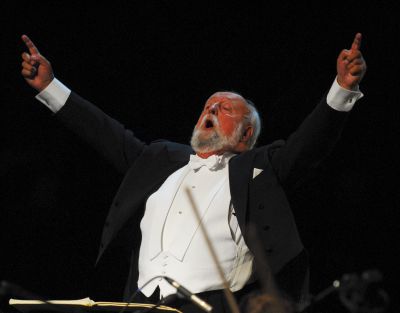Bronisław Huberman: From child prodigy to resistance fighter against National Socialism

Around the same time, Huberman set up the Palestine Orchestra which he began as an effective weapon against the Nazi regime. However, the history to this dates back two years earlier. At the beginning of 1934, Huberman was on a tour through Palestine where he had given his first guest performance in 1929. The recent series of concerts comprised a total of twelve sold-out performances, which were followed by several “concerts for workers”, that is, performances with a reduced entry price for the poorer strata of the population. In Tel Aviv he appeared with an orchestra that had been founded in 1933. Its members had been living in Palestine since the 1920s and had recently started to welcome musicians who had emigrated from Europe.[40] Huberman commented that the woodwind and brass sections in the orchestra needed to be reorganised and made the concert takings available to engage new players from Europe. In 1935, when it transpired that his plans did not align with the objectives of the current initiators, he developed plans for his own orchestra which was to be financed with the aid of Jewish patrons in Europe and the US through an international orchestra trust. At the end of 1935, he entrusted the economist Salo B. Lewertoff (1901-1965), who had emigrated from Cologne and was the former head of the Cologne chapter of the International Society for Contemporary Music,[41] with the orchestra’s management and with the position of general secretary.
From February to April 1936, Huberman undertook a concert tour through the US. On 9 February, the New York Times reported under the heading “Orchestra of Exiles”: “Bronislaw Huberman, the Polish violinist, has reported that the first symphony orchestra in Palestine is to be created. The orchestra will have 65 musicians. It will be formed from outstanding German musicians who have been denied the right to play in their own country, and from other prominent European musicians.”[42] Huberman managed to rake together the basic capital to found the orchestra by holding forty-two benefit concerts right across the United States, which he completed in sixty days. In interviews and speeches, he stressed that his main motivation was to rescue Jewish musicians and their families from the National Socialists. He also managed to get artists, scientists and financially powerful groups interested in the founding of the orchestra. On 30 March 1936, the physicist Albert Einstein (1879-1955, Fig. 9) held a dinner at the Waldorf Astoria to benefit Huberman’s project and supported the campaign with letters to personalities from public life.[43] Toscanini made a spontaneous statement that he was prepared to direct the inaugural concerts of the new orchestra in Tel Aviv, Haifa and Jerusalem as well as some concerts in Egypt. This commitment, which was also published by the New York Times, led to financial assurances from numerous Jewish personalities which meant that the future orchestra’s existence was secured for three years.
[40] Von der Lühe 1993 (see Literature), page 1046 ff.
[41] For a biography of Salo(mon, Shlomo) Bernhard Lewertoff, who was born the son of a merchant in Höxter in 1901, compare von der Lühe 1998 (see Literature), page 72
[42] The Week’s News and Comment Concerning Music. Orchestra of Exiles, in: The New York Times dated 9 February 1936, Section X, page 7, preview see online : https://www.nytimes.com/1936/02/09/archives/orchestra-of-exiles.html?searchResultPosition=2
[43] Von der Lühe 1998 (see Literature), page 78 f.












